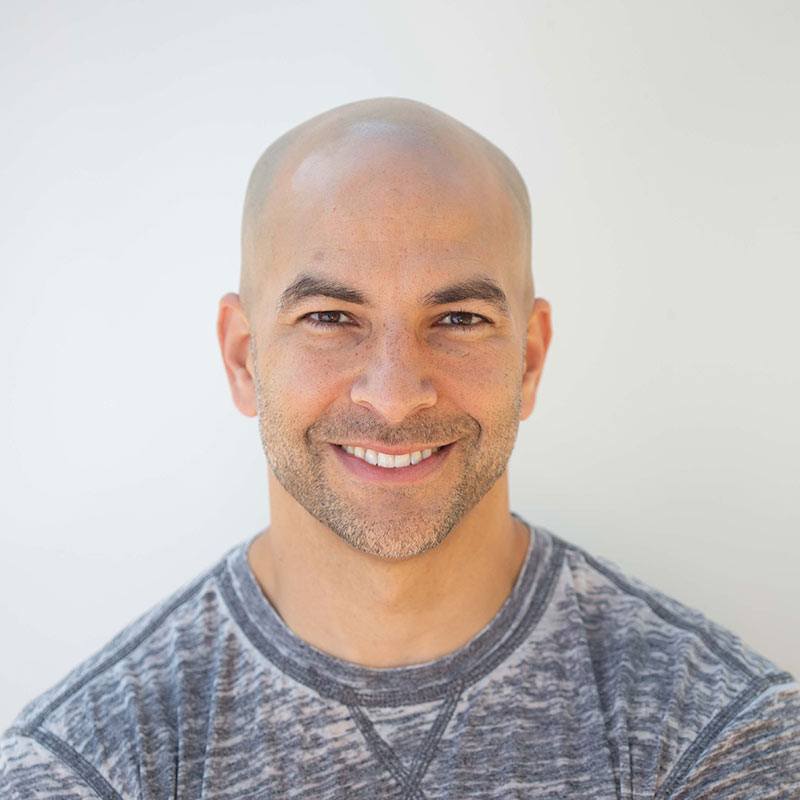Dr. Ashley Mason on Sauna Use for Depression, Conquering Insomnia, and Mindfully Breaking Bad Habits
Dr. Ashley Mason, a clinical psychologist, directs the Sleep, Eating, and Affect Laboratory at UCSF’s Osher Center for Integrative Medicine. Her research explores sauna’s clinical utility for depression and focuses on non-pharmacological interventions for depression, insomnia, and overeating, offering alternative treatment avenues for these conditions.
Key Takeaways
High level takeaways from the episode.
Protocols
Source
Full Notes
Dr. Ashley Mason and Whole Body Hyperthermia
- Dr. Ashley Mason: Director of the Sleep, Eating and Affect Laboratory at the Osher Center for Integrative Medicine at UCSF
- Specializes in nonpharmacological treatments for changing behavior, such as sleep, eating behavior disorders, and mood disorders
Whole Body Hyperthermia vs. Sauna
- Whole body hyperthermia: more intense than sauna, involves consistent heating for a longer period, head is outside the heating element
- Sauna: less intense, shorter sessions, whole body (including head) inside the heating element
Preliminary Findings on Whole Body Hyperthermia
- 2016 study by Janssen et al. tested whole body hyperthermia as a treatment for clinical depression
- Participants were either given whole body hyperthermia or a sham treatment
- Results showed significant drops in depression scores within a week, maintained six weeks later
- 2013 study by Hanusch et al. also showed positive effects of whole body hyperthermia on depression, but lacked a control group
Quick Effects and Lasting Results
- Whole body hyperthermia showed effects within a week, faster than SSRIs (antidepressants)
- One session of whole body hyperthermia had lasting effects for six weeks
Possible Mechanisms
- SSRIs and whole body hyperthermia both involve sweating (hyperhidrosis)
- Literature shows temperature dysregulation in people with depression
- Higher nighttime body temperatures, less efficient thermoregulatory cooling
- Successful treatments (e.g., ECT) often result in decreased core body temperature alongside decreased depression symptoms
- Hanusch study found a correlation between decreased body temperature and decreased depression after whole body hyperthermia treatment
-
Sauna use may affect thermal regulation and body temperature, potentially impacting depression symptoms
Depression and Body Temperature Regulation - Clinical depression vs. situational depression
- Major depressive disorder: mental health disorder
- Correlation between body temperature dysregulation and depression in some studies
- Stress and thermoregulatory system
- Unclear data on whether stress can cause dysregulation of body temperature
- Plausible that prolonged distress could lead to depression symptoms
Inflammation and Depression
- Inflammatory response can induce depressive symptoms in healthy individuals
- Example: Injection of lipopolysaccharide (LPS) causes inflammation and depressive symptoms
- Prevention: High dose of EPA (marine omega‑3 fatty acid) can negate inflammation and depressive symptoms
- Sauna and inflammation
- Sauna use can affect inflammation and potentially improve depression
Sauna and Exercise
- Sauna use mimics moderate cardiovascular exercise
- Similar physiological responses: increased blood flow, sweating, elevated heart rate, blood pressure changes
- Studies show exercise can improve depressive symptoms in people with clinical depression
- Sauna use may help depression in a similar way to cardiovascular exercise
Whole Body Hyperthermia Studies
- Developing accessible and affordable whole body hyperthermia treatments for depression
- Goal: Create a treatment that can be used outside of hospitals and in various settings
- Experiment: Testing various saunas to find one that can raise core body temperature to 101.3°F (the temperature used in previous studies)
- Challenges: Most saunas cannot reach the desired temperature without causing discomfort or health risks
Sauna Studies for Depression and Cardiovascular Disease
- New study focusing on the effects of sauna on depression and cardiovascular disease
- Two parts:
- First study: 16 people, all receiving the same treatment
- Second study: 30 people, split into two groups receiving different treatments
- Delayed due to COVID-19
- Two parts:
- Investigating the molecular effects of sauna on depression
- Biomarkers and heat shock proteins play a role in adaptation to heat stress
- Potential benefits for both mental and physical health conditions
- Importance of developing protocols that people will actually follow
- Sauna is more accessible and easier to comply with than exercise for some individuals
- Applicable to those with disabilities or who are not physically active
- Could provide benefits for both depression and cardiovascular disease
Biomarkers in Depression Studies
- Measuring biomarkers in studies:
- BDNF (Brain-derived neurotrophic factor)
- Heat shock proteins
- Inflammatory cytokines
- CRP (C‑reactive protein)
- BDNF role in depression:
- Involved in neuroplasticity
- Exercise increases BDNF, potentially helping with neuroplasticity
- Depression may be inflammatory for some people
- Exercise is temporarily inflammatory but leads to adaptive, anti-inflammatory changes
Whole Body Hyperthermia and Cognitive Behavioral Therapy for Depression
- First study: 16 adults with major depressive disorder
- Participants receive whole body hyperthermia treatment and cognitive behavioral therapy (CBT) for depression
- Cognitive Behavioral Therapy (CBT):
- Psychotherapy used for depression
- Gold standard, first-line treatment for depression without medications
- Focuses on the connection between thoughts, feelings, and behaviors
- Combining whole body hyperthermia with CBT:
- Idea comes from traditional communal sauna experiences
- Hyperthermia may make people more willing to engage in therapy
- Second study: 30 people, half receive CBT only, half receive CBT and whole body hyperthermia
- Aim to see if adding hyperthermia leads to larger decreases in depression
Future Research and Potential Applications
- Developing a booster method for maintaining wellness and reducing depression symptoms
- Home sauna tents as a supplement to more intense whole body heating
- Opening the door for more research on different types of sauna and heat therapy
- Finnish sauna, hot baths, jacuzzis
- Small clinical studies showing hot baths can improve depressive symptoms in people with depressive disorder
- 2017 study: hot baths improved symptoms at two weeks, but reduction faded by four weeks
- Many research questions still need to be answered in the field of heat therapy and depression
Non-pharmacologic Treatments for Chronic Insomnia
- Another area of expertise for the speaker
- Focus on helping treat people with chronic insomnia using non-pharmacologic treatments
Insomnia vs. Chronotypes
- Focus on helping treat people with chronic insomnia using non-pharmacologic treatments
- Chronotypes: genetic predisposition to being a night owl or morning person
- Roughly a third of people are morning people, a third are evening people, and a third are somewhere in the middle
- Society is built to favor morning people, causing difficulties for night owls
- Chronotypes are not necessarily sleep problems, but can pose health risks for night owls
- Insomnia: difficulty falling asleep, staying asleep, or waking up too early
- Must occur at least three nights a week for at least three months and be distressing
- Different from chronotypes, as it is a sleep problem
Causes of Insomnia
- Major changes in life can cause insomnia
- Retirement, changes in relationship status, losing a job, having a child, etc.
- Behaviors that maintain insomnia are often different from what caused it
- Bad sleep hygiene behaviors, such as using electronics in bed or napping during the day, can perpetuate insomnia
Treatment for Insomnia
- Cognitive Behavioral Therapy for Insomnia (CBT‑I) focuses on:
- Sleep hygiene
- Stimulus control: only using the bed for sleep or sex
- Sleep restriction: focusing on the amount of time spent in bed
- Cognitive techniques
- Relaxation techniques
-
Recommended book: “Quiet Your Mind and Get to Sleep” by Dr. Rachel Manber
Dr. Panda on Sleep Consistency - Importance of not waking up at different times
- Artificial jet lag
- Patients go to bed when tired, wake up at the same time for 7 days
- Calculate average sleep time per night
Sleep Restriction and Cognitive Techniques
- Restrict time in bed to actual sleep time
- Improve sleep quality
- Extend sleep time by 15 minutes per week, maintaining 85% efficiency
- Cognitive techniques
- Work with worries and thoughts
- Identify dysfunctional thoughts
- Black and white thinking
- Personalization
- “Should” thoughts
- Thought record exercise
- Look at evidence for and against a thought
- Develop a new, more realistic thought
Sleep Treatment Components
- Sleep hygiene
- Stimulus control
- Sleep restriction
- Cognitive techniques
- Relaxation techniques
- Progressive muscle relaxation
Important Components for Good Outcomes
- Sleep restriction
- Stimulus control
Pharmacological Treatment for Insomnia
- Ambien: common drug for insomnia
- Can lead to dependence
- Side effects: sleep eating, memory issues, potential association with dementia
Cognitive Behavioral Therapy for Insomnia (CBTi)
-
CBTi is a non-pharmacological treatment for insomnia
- Helps people taper off sleep medications
- Involves working with providers and creating a taper plan
- Can take up to six months or longer to get off drugs
- Standardizes medication use and addresses underlying issues causing insomnia
- Can be done through books, apps, or finding providers through websites like the Academy of Behavioral Sleep Medicine
- Treatment can last for a long time, with some people maintaining it for the rest of their lives
Overeating and Reward-Based Behavior
- Overeating can be due to stress, cravings, or other reward-based behaviors
- It can be difficult for people to stop overeating or consuming unhealthy foods and beverages
- The first step to change is determining if someone wants to change their behavior
-
Understanding the underlying reasons for overeating can help in developing strategies to address the issue
Changing Unhealthy Behaviors with Mindfulness -
People struggle to change unhealthy behaviors even when they know the consequences
- Example: eating donuts when feeling down
- Provides temporary relief from negative feelings
- Over time, this behavior can lead to weight gain and other health issues
- Mindfulness can help change these behaviors
- Slowing down and paying attention to the experience
- Realizing the reward may not be as satisfying as initially thought
Mindfulness in Action
- Example: smoking cessation
- Patient asked to focus solely on smoking, without any distractions
- Patient realized they didn’t need to smoke as much as they thought
- Mindfulness can help people become disenchanted with unhealthy behaviors
- Slowing down and really tasting the food or experiencing the behavior
- Realizing the reward is not as great as initially thought
Changing the Reward Perception
- Focusing on the actual reward can help change the perception of it
- Realizing there may be a better approach to dealing with negative feelings
- Mindful eating intervention study
- Overweight women learned to be curious and open to observing their experiences
- Resulted in eating in response to cravings less often
Impact on the Brain
- Mindfulness can change brain activation patterns
- Serious meditators show different brain activation during meditation
- Changing perceived reward value can alter brain patterns
- Banning sugary beverages and providing motivational intervention
- Resulted in reduced soda consumption over time
Mindfulness and Harm Reduction
- Resulted in reduced soda consumption over time
- Mindfulness can help reduce harmful behavior
- Slowing down and paying attention to the experience
- Consuming less of harmful substances or activities
- Can be applied to various addictive behaviors
- Eating junk food, smoking, gambling, internet addiction
- Techniques to help reduce harmful behaviors
- Being mindful during the behavior
- Changing the reward by being mindful of it
- Checking in with your body and emotions
- Challenges with mindfulness
- Pausing and slowing down isn’t naturally rewarding
- Mindfulness may not be the whole answer
- Other ways to work with harmful behaviors
- Environmental interventions (e.g., not having junk food at home)
- Planning ahead (e.g., looking at menus before going to a restaurant)
- Episodic future thinking (imagining future health goals or events)
- Reward-based learning and positive/negative reinforcement
- Powerful in shaping behaviors
- Mindfulness can help break the cycle by focusing on the experience
Dr. Ashley Mason’s Contact Information
- Twitter: @DrAshleyMason
- Lab website: sealab.ucsf.edu (Sleep, Eating, and Affect Lab)
Support the Podcast
Found My Fitness Membership
- Member’s only Q&A and podcast
- Twice monthly Science Digest: a curated list of the latest studies we found most interesting, with notes, comments and related links
- Access the Comprehensive and Basic Genetic Reports, and get lifetime updates with your subscription
- Rhonda’s research summaries, background notes, and private articles on longevity, aging, cancer, sauna, fasting, and more.
- foundmyfitness.com/crowdsponsor
Rhonda Patrick Social Media


